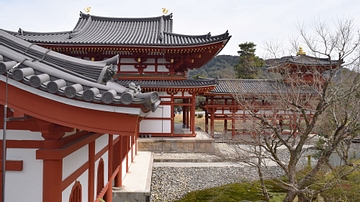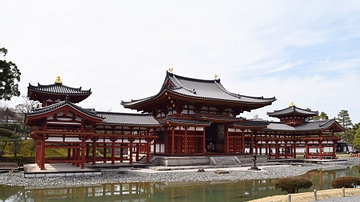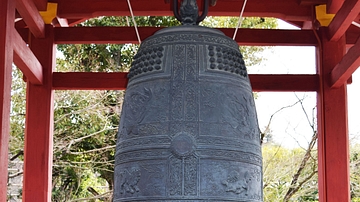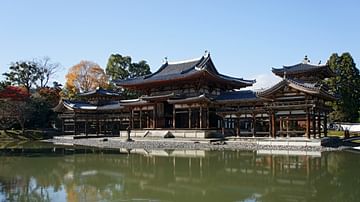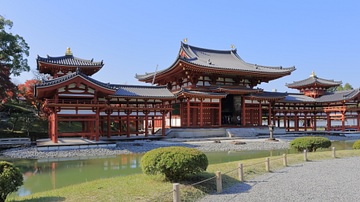Illustration
The Byodoin Temple in Uji, Japan dates from the late-Heian period, and it served as the residence of the influential minister Fujiwara no Michinaga (966-1028 CE). It was originally built in 998 CE. The most famous portion of the temple is the "Phoenix Hall," which is a National Treasure and appears on the Japanese 10 yen coin. Inside the Phoenix Hall is an ancient sculpture of the Amida Buddha, which was made by the famous Japanese Jocho (d. 1057 CE).
About the Author
Cite This Work
APA Style
Wiener, J. B. (2018, January 12). The Heian-era Byodoin Temple. World History Encyclopedia. Retrieved from https://www.worldhistory.org/image/7908/the-heian-era-byodoin-temple/
Chicago Style
Wiener, James Blake. "The Heian-era Byodoin Temple." World History Encyclopedia. Last modified January 12, 2018. https://www.worldhistory.org/image/7908/the-heian-era-byodoin-temple/.
MLA Style
Wiener, James Blake. "The Heian-era Byodoin Temple." World History Encyclopedia. World History Encyclopedia, 12 Jan 2018. Web. 30 Mar 2025.



